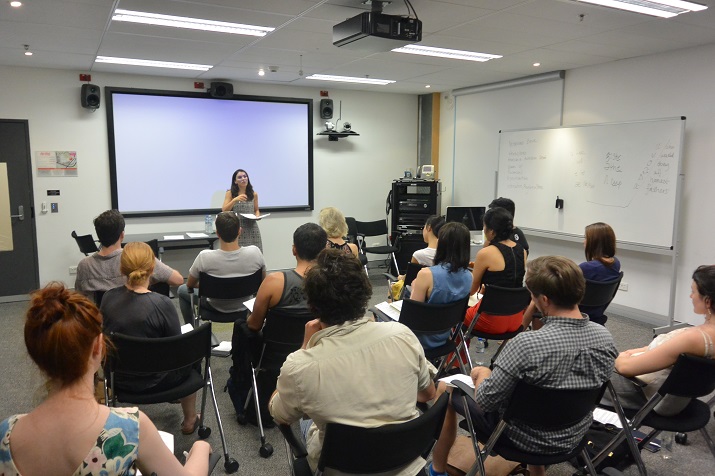Ten top tips - Mullinars

Casting directors from Mullinars share their advice for audition success.
With offices in Sydney and Melbourne, Mullinars have cast more than 4,000 television commercials, 45 Australian series and more than 70 feature films. These tips were compiled by the Mullinars team.
1. Be prepared. Regardless of how it works in the US, Australian directors and producers expect actors to learn their lines for an audition. Not having to worry about your lines gives you the opportunity to be flexible and open to direction. Before you walk into the room, ask yourself the important questions about the character, such as, “Who am I and what do I want?”
2. Present yourself in the best possible light. Arrive with enough time to feel confident and as relaxed as possible. Dress to suggest an understanding of the character but not in a ‘costume’. For example, if you are testing for the role of a barrister and you come dressed in boardshorts and thongs, it could make it harder for the decision-makers to see you in the role. On the other hand, you don’t need to come in wig and gown – that’s going too far. In this instance, smart professional clothes would be perfect.
3. Stay flexible. In the audition room, be ready to let go of everything you have rehearsed and try something new. Often, we’ll ask you to vary the scene simply to ensure you are a flexible actor, not because your initial interpretation was wrong.
4. Brush up on your accents. If you’ve been asked to screentest using an accent, practise beforehand. You want to be able to concentrate on your performance and stay in character, rather than spending the whole test listening to yourself.
5. Be genuine. Directors are deciding if they want to work with you, just as much as they are deciding if you are right for a role. Let them see the real you.
6. Do your research. Find out all you can about the storyline, your character, the period, the style of the work, the director and so on. If it’s an existing series, watch some episodes so you can judge where to pitch your audition. If there are no details available, don’t be afraid to ask questions in the room if you feel it will help your audition. If there is a full script to read, come in and read it.
7. Listen, listen, listen – and keep going. If the director or casting director gives you notes, listen carefully and be sure to use them in your next take. If there is a reader in the room, respond and engage with them; they are there to support you. If you encounter a less-than-ideal reader, do your best, and remember that everyone is testing with that reader; it’s a level playing field. Don't stop mid-audition because you forgot your lines or you’re not feeling ‘it’ – keep ploughing through. Nine times out of 10, the stumble is worth it if you get to the end, as there might have been some really terrific moments before you lost it. We can edit screentests to ensure only your best work is presented.
8. Submit a self-test. If you can’t make it to the casting session and you have been invited to submit a self-test, keep it clear and simple. Lighting should be gentle but not atmospheric (fluoro is often too severe, while candlelight is not sufficient); audio quality must be clear, without too many other sounds; your backdrop should be neutral so as not to distract from your test. Place yourself closer to the microphone than your reader. If the reader is operating the camera, try and lock off the frame in a medium close-up and then move the reader further back so their voice won’t dominate. The advice to ‘keep going’ does not apply to self-tests. We don’t want to see more than two takes of a scene or any stuff-ups.
9. Keep your online profile up to date. Your Showcast, Casting Networks or similar profile should always be accurate, ideally with a showreel link (yes, we do watch them, and yes, we do send them to producers and directors when we’re recommending you for a role).
10. Enjoy every audition. Remember, if you have been asked to screentest, we believe you are potentially right for the role and want you to do well. A good screentest is never wasted, as good work is always remembered by the decision-makers.